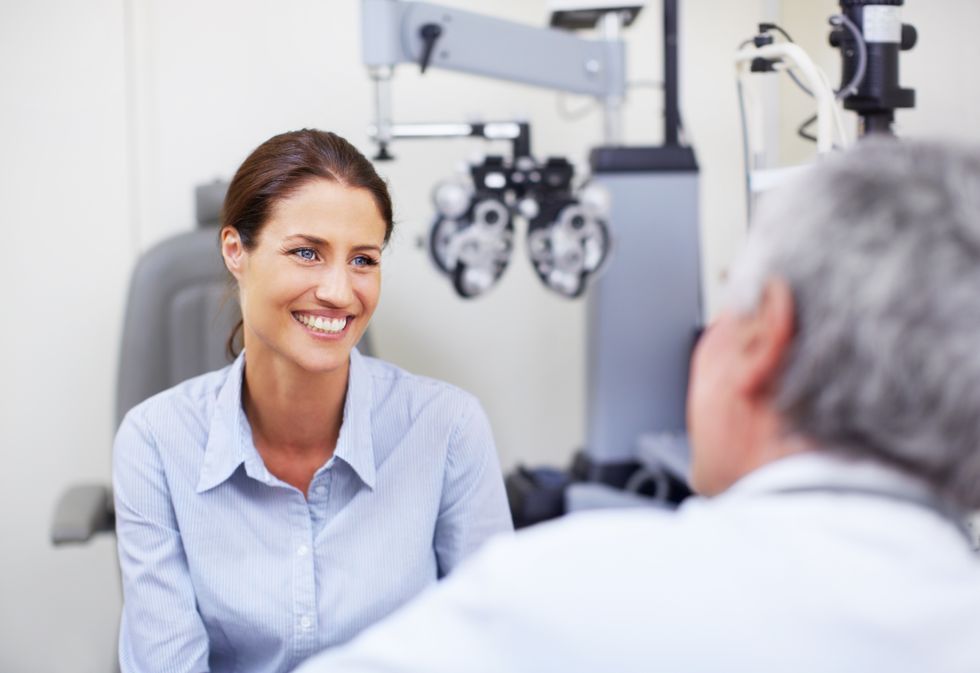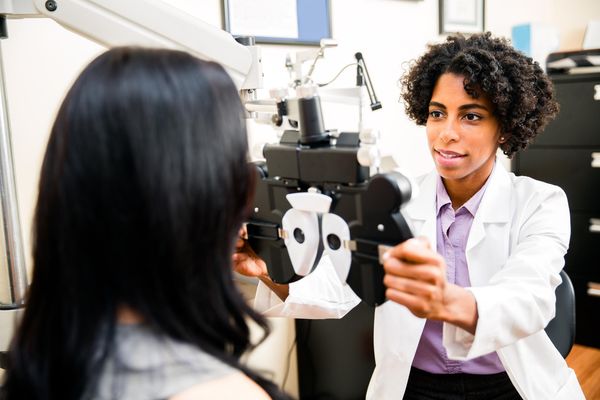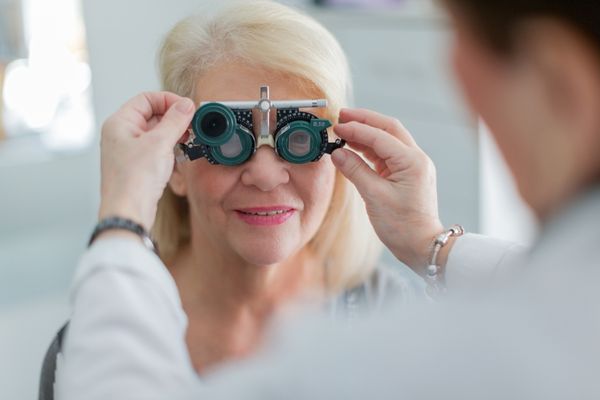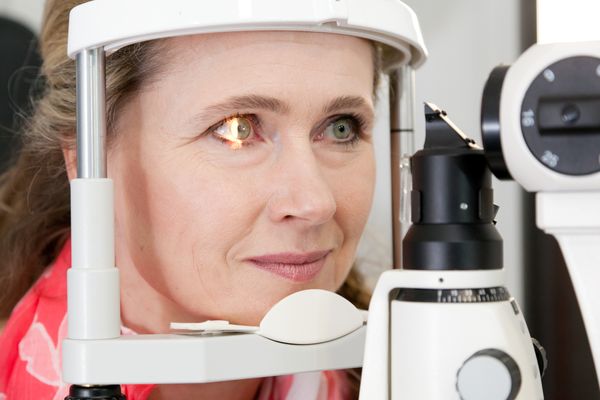When's the last time you had a good conversation with your eye care professional? If you have to think about it, it's been too long. Just as it's important to talk openly with your friends and loved ones, it's critical that you openly communicate with your health care providers—eye care professionals included.
In fact, the conversation you have with your eye care professional is as important as the physical eye exam. The more engaged you are during that dialogue, the better able your eye doctor will be to diagnose any problems or chronic conditions and create a treatment plan that is right for you.
A recent online survey of 1,053 adult Americans conducted by Allergan, makers of Restasis Multidose® (cyclosporine ophthalmic emulsion) 0.05%, and Kelton Global, showed more than half (53%) of respondents are most comfortable talking about their health with a general practitioner, while only 6 percent said the same about their eye care professional.
Making an appointment to see your eye care professional is the first step. The Conversation Starters survey found nearly one in five patients (18%) hasn't been to an eye care professional in the past five years. A regular visit to your eye doctor is not something you should let go. These visits help protect your eye health and provide a window to the rest of your body.
Plus, these regular visits provide an opportunity for you to talk with your eye care professional aboutany eye-related changes in your routine or symptoms you may be experiencing. For instance, you might notice your eyes are redder in the morning than in the afternoon; suddenly, you can only wear your contacts for a few hours at a time; or you have been using artificial tears often or for a long time. Frequently, symptoms like these are dismissed as a normal part of the aging process or something minor or temporary. In actuality, these symptoms may signal underlying conditions such as chronic dry eye, a disease that is associated with advanced age, some medications, contact lens wear, certain medical conditions and environmental factors.
More Than Meets the Eye
Too many people wait until they notice a problem with theirvision to make an appointment with an eye care professional. Then, when they get to the appointment, they may neglect to bring up other eye symptoms they're experiencing or forget to ask questions. The Conversation Starters survey found that while many raise concerns about a change in vision, respondents were less likely to bring up issues like burning or stinging (9%), redness (9%) or watering eyes (12%). Among those with concerns, nearly half (45 percent) of survey respondents don't openly discuss concerns with their eye doctor because they don't think they're serious issues, hope they will go away on their own or assume they're natural consequences of aging.
Many eye problems, such as chronic dry eye, have signs and symptoms beyond changes in vision, so it's crucial to pay attention to all changes and talk with your eye care professional about everything going on with respect to your eyes. A conversation with your doctor can help identify things that might not turn up in the eye exam and spot signs of health conditions that first manifest with eye symptoms, such as chronic dry eye.
This disease occurs somewhat more frequently in women than in men and is more common in people 50 years of age or older. Many people with a type of chronic dry eye don't realize their symptoms were a sign of something more until they had a candid conversation about their eyes. That's why it's important to be open about discussing all concerns with your eye care professional, even if you don't think there's an issue.
Having an open dialogue during your visit also will enable your eye care professional to offer treatment options that can help with any issues you may be experiencing. For instance, if you are diagnosed with a type of chronic dry eye, your eye care professional may prescribe Restasis Multidose, which helps increase your eyes' natural ability to produce tears, which may be reduced by inflammation due to chronic dry eye. Restasis Multidose® is the only FDA-approved, preservative-free, prescription eye drop in the United States to be offered in a multidose bottle.
Additionally, it's important to understand that there is a difference between a vision screening and a complete eye exam. A vision screening is a limited eye evaluation that takes place outside an eye care professional's office at places like a company health fair. These screenings can sometimes detect vision problems, but they are no substitute for a thorough eye exam and the opportunity to have a good conversation with your eye care professional as part of a complete office visit.
During a complete eye exam, an ophthalmologist or optometrist will answer any questions you may have and talk to you in depth about your eyes. Here are some good sample questions to ask:
- Does this diagnosis address the core of my problem?
- Is there an underlying cause for my condition?
- What will help my condition or make it worse?
- Are there lifestyle changes I should make?
- Are there any dietary factors that can make my condition better or worse?
See Your Eye Doctor
To protect and preserve your eye health and to help identify other health conditions that might benefit from treatment, the best thing you can do is schedule regular eye doctor visits.
In terms of frequency, the American Academy of Ophthalmology recommends the following:
- All adults get a baseline eye exam by an ophthalmologist by age 40. If you have an eye disease or risk factors for developing one, such as a family history of eye disease, high blood pressure or diabetes, you should start seeing an ophthalmologist earlier.
- Adults over 65 get a comprehensive eye exam every one to two years or as recommended by your ophthalmologist.
These guidelines apply even if you have naturally perfect vision or wear glasses or contact lenses.
Armed with knowledge about your eyes, your eye care professional can determine a diagnosis and develop a treatment plan that is right for you.
If you communicate well with your eye care professional, you will leave the appointment with a clear view of how your eyes are doing.







